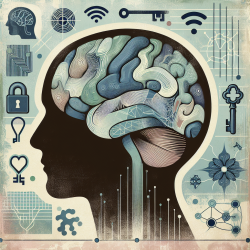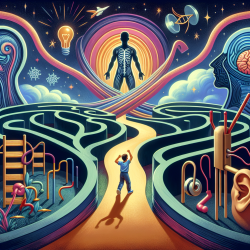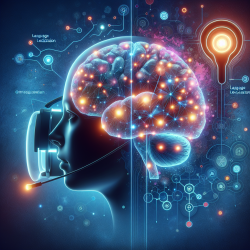The intersection of science and spirituality has long been a topic of fascination and debate. Franz Joseph Gall, a pioneer in the study of the brain and its functions, navigated this complex terrain with his groundbreaking research on phrenology. His work laid the foundation for our understanding of cortical localization and challenged the prevailing notions of his time. As modern practitioners, we can draw inspiration from Gall's legacy to enhance our skills and deepen our understanding of human cognition.
The Legacy of Franz Joseph Gall
Franz Joseph Gall's doctrine of many faculties of mind with corresponding cortical organs was revolutionary in the late 18th and early 19th centuries. Despite facing accusations of materialism and atheism, Gall's work emphasized the need to separate metaphysics from the laws of nature when presenting his new science of man. His belief in God as the Creator did not deter him from pursuing empirical research that focused on observable facts.
Cortical Localization: A Pioneering Concept
Gall's idea that different cognitive traits are linked to specific areas of the brain was a precursor to modern neuroscience. His method involved studying skulls to identify tell-tale cranial bumps associated with particular mental faculties. Although some aspects of his theory were later discredited, his emphasis on cortical localization remains a cornerstone in understanding brain function today.
Implementing Gall's Insights in Modern Practice
As practitioners in fields such as special education and online therapy, we can leverage Gall's insights to improve our approaches to teaching and therapy. Here are some ways to incorporate his legacy into modern practice:
- Embrace Individual Differences: Gall's work highlighted the uniqueness of each individual's cognitive abilities. Practitioners should tailor their methods to accommodate diverse learning styles and needs.
- Focus on Brain-Based Learning: Understanding the brain's role in learning can inform strategies that enhance educational outcomes. Incorporate neuroscience principles into lesson plans and therapeutic interventions.
- Encourage Further Research: Gall's pioneering spirit serves as a reminder to continually seek new knowledge. Encourage students and colleagues to engage in research that explores the connections between brain function and behavior.
The Role of Religion in Gall's Work
Gall's exploration of a cortical faculty for God and religion adds an intriguing dimension to his research. He believed that humans possess an innate faculty for recognizing a higher power, which he associated with a specific part of the brain. This perspective invites practitioners to consider how spirituality may influence cognitive processes and personal development.
Navigating Science and Spirituality
Gall's ability to reconcile his scientific pursuits with his belief in God offers valuable lessons for practitioners today. It encourages an open-minded approach that respects both empirical evidence and personal beliefs. By acknowledging the role of spirituality in human experience, practitioners can provide more holistic support to their clients.
Conclusion
Franz Joseph Gall's contributions to neuroscience and psychology continue to resonate with modern practitioners. His emphasis on empirical research, individual differences, and the interplay between science and spirituality provides a rich framework for enhancing our skills and understanding. As we navigate the complexities of human cognition, let us draw inspiration from Gall's legacy to foster innovation and growth in our respective fields.
To read the original research paper, please follow this link: Franz Joseph Gall on God and religion: “Dieu et Cerveau, rien que Dieu et cerveau!”










